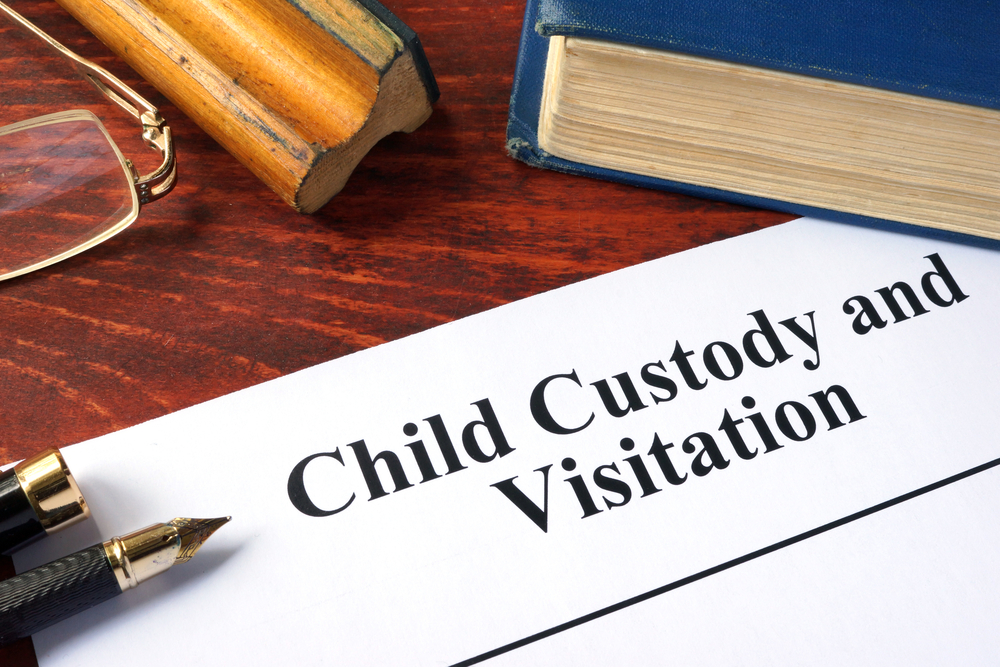Virginia judges who hear and decide child custody cases strive to give the affected children stability during what is often a troubling time. However, what may have been the best and most stable option at the time the custody agreement was ordered may not be the best situation months or years later.
Perhaps one parent’s financial situation improved and they want to amend an agreement that gave the other parent sole custody to one that offers either physical or legal joint custody. The state’s family law judges are willing to consider changes in parental circumstances as a basis to modify a Virginia custody agreement as long as the modification continues to be in the best interests of the child.
Here, we will explore the laws regarding custody agreements and their modification. However, if you still have questions about amending your custody agreement, contact Mike Deering today. An experienced Virginia Beach family attorney, Mike will be ready to answer your questions during a consultation.
Custody Agreements in Virginia
Child custody as a term describes the legal relationship a child has with their parent or guardian. Generally speaking, there are two primary ways child custody is defined:
- Legal custody, which describes a parent or guardian’s right to make decisions about the child’s long-term upbringing, such as where they attend school and which if any religious tradition they are raised with.
- Physical custody, which describes the day-to-day responsibilities of child rearing, and which parent or guardian the child lives with and at what times.
Legal and physical custody are distinct from one another, and each may be sole—in which only one parent or guardian has custody—or shared—in which they split custody in an agreed-upon manner. For example, a parent or guardian may not have physical custody of their child, but might still share legal custody of them, and thus may take part in the decision-making process regarding schooling, religion, and medical care.
The goal of any custody arrangement is to provide what is best for the child, and that is also true for any changes that are made to the arrangement at a later date. Virginia Code § 20-124.3 provides family law judges in Virginia with a framework for making or changing visitation and custody rights. The law is very clear that the child’s best interests are paramount in any custody agreement.
If the judge grants one parent sole physical custody, they have determined that the child is better off living with one parent who will also make all of the day-to-day parental decisions for the child. The judge can order the “non-custodial parent” to pay child support to the parent with sole custody of the child.
They also have a legal right to visit their child, unless the Virginia family court determines that visitation is not in the child’s best interests. If visitation is granted, it’s often best for both parents to decide on a visitation schedule to avoid future issues. If they can’t agree, the judge will set a schedule for them that they must both follow.
In extreme cases, the judge may order temporary or permanent custody to someone else, such as a grandparent. Grandparents can also petition the court for visitation rights.
Family law judges in Virginia do not consider a parent’s gender when determining custody. Rather, they look at theseas well as other circumstances that may be important in each individual case:
- The child’s age and the current and future physical and emotional care they require
- Each parent’s age as well as physical and mental health
- The existing parent-child relationship and whether that relationship has a positive influence on the child, as well as the future role of that parental relationship
- Other relationships the child has that could be disrupted, such as with siblings and grandparents
- Whether each parent supports and encourages the child’s relationship with the other parent
If the child is old enough, the judge may consider their preference in a custody agreement, as long as that preference seems reasonable. The judge will also consider any history or threats of abuse.
Modifying a Custody Agreement in Virginia
Since changing a custody agreement in Virginia could disrupt a child’s stability, a Virginia family law judge will want to see strong evidence from the requesting parent that shows a material change in circumstances that is significant enough to warrant a modification. The judge is more likely to grant the modification if both parents agree. Examples of material changes in circumstances include:
- Changes in a parent’s financial situation, work situation or schedule
- Geographical relocation
- Changing needs of the child
- Changes that positively or negatively affect the child’s stability, such as one parent’s remarriage or divorce
- Change in a parent’s health status
- Any circumstance that negatively impacts the child, such as substance abuse
What is the Process for Changing a Custody Agreement in Virginia?
The parent asking for a child custody agreement modification needs to file a motion to do so with the courts. In Virginia this is typically done in the same Juvenile and Domestic Relations District Court that ordered the original custody agreement, although there may be some exceptions, such as if one parent has moved.
The judge will evaluate the potential impact of the modification request using the same considerations as the original agreement, keeping the child’s best interests in mind and considering the child’s preferences if appropriate.
You could request a custody modification in Virginia as many times as you like, as long as you can provide a valid reason.
How a Virginia Lawyer Can Help with a Custody Agreement Modification
It’s important that you seek legal advice from a qualified Virginia family law attorney before asking a judge to modify a custody agreement. You will want to present your reasons in a manner that clearly demonstrates you are making your request with the best interests of your child in mind.
Virginia child custody lawyer Mike Deering understands the emotional toll that parents can feel living with an unworkable custody agreement, or the urgency of getting one modified. You can speak with him about your unique situation during a consultation, by contacting him online or calling 757-383-6848 today.








